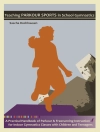Mc Guffey’s Sixth Eclectic Reader stands as a pivotal educational text from the 19th century, epitomizing the ideals of moral education through literature. Composed in a didactic and accessible prose style, the Reader incorporates a diverse array of literary selections, including prose, poetry, and essays, chosen to foster both intellectual growth and ethical development in its young audience. These carefully curated readings reflect the cultural and moral values of the period, engaging students in themes of patriotism, virtue, and the human experience, making it not just a tool for literacy but a vehicle for moral instruction. William Holmes Mc Guffey, a prominent American educator and Presbyterian minister, crafted this influential series as a response to the growing need for quality reading materials in American schools during the rise of public education. His educational philosophy emphasized the importance of character-building alongside academic knowledge, which informed the selections in the Eclectic Reader. Mc Guffey’s background and experiences as a teacher profoundly shaped his vision of education, leading to a legacy that impacted generations of American students. I highly recommend Mc Guffey’s Sixth Eclectic Reader for educators, scholars, and general readers interested in the intersection of literature and moral philosophy. Its rich content not only provides historical insight into 19th-century America but also invites reflection on the enduring role of literature in shaping character and citizenship. Engage with this classic text to rediscover the power of reading in fostering ethical development.
عن المؤلف
William Holmes Mc Guffey (1800–1873), an esteemed educator and academic, is most famously known for his series of textbooks, the Mc Guffey Eclectic Readers. Born near Claysville, Pennsylvania, and later a professor at Miami University in Ohio, Mc Guffey’s literary contributions significantly shaped American public education. His renowned Mc Guffey’s Sixth Eclectic Reader, a part of the Eclectic Educational Series, alongside other volumes, played a pivotal role in standardizing teaching methods and curriculum across the burgeoning United States. Mc Guffey’s Readers are characterized by their incorporation of moral lessons, literary excerpts, and instructional elements, designed to foster both literacy and ethical uprightness. His pedagogical methods and well-curated selections helped solidify his texts as instrumental tools in the classroom, making him a central figure in 19th-century American education. The eclecticism of his approach—which blended rigorous academic standards with values-based content—attracted a wide audience and engendered literacy for millions of American children. The enduring popularity of Mc Guffey’s Readers, which saw numerous editions, is a testament to his impact on educational practices and his lasting influence on American cultural literacy. His work exemplifies the integration of formative education with the inculcation of civic virtues, reflecting the aspirations of his time for a well-educated, moral citizenry.












